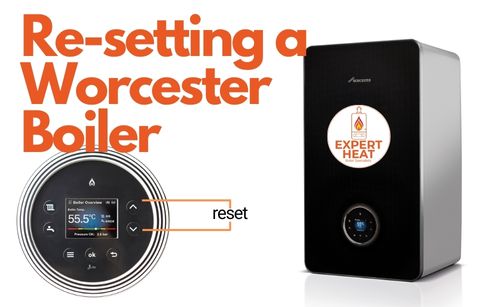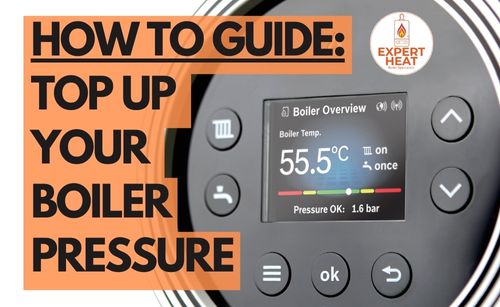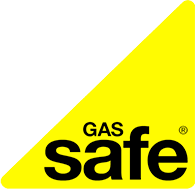Boiler Repair
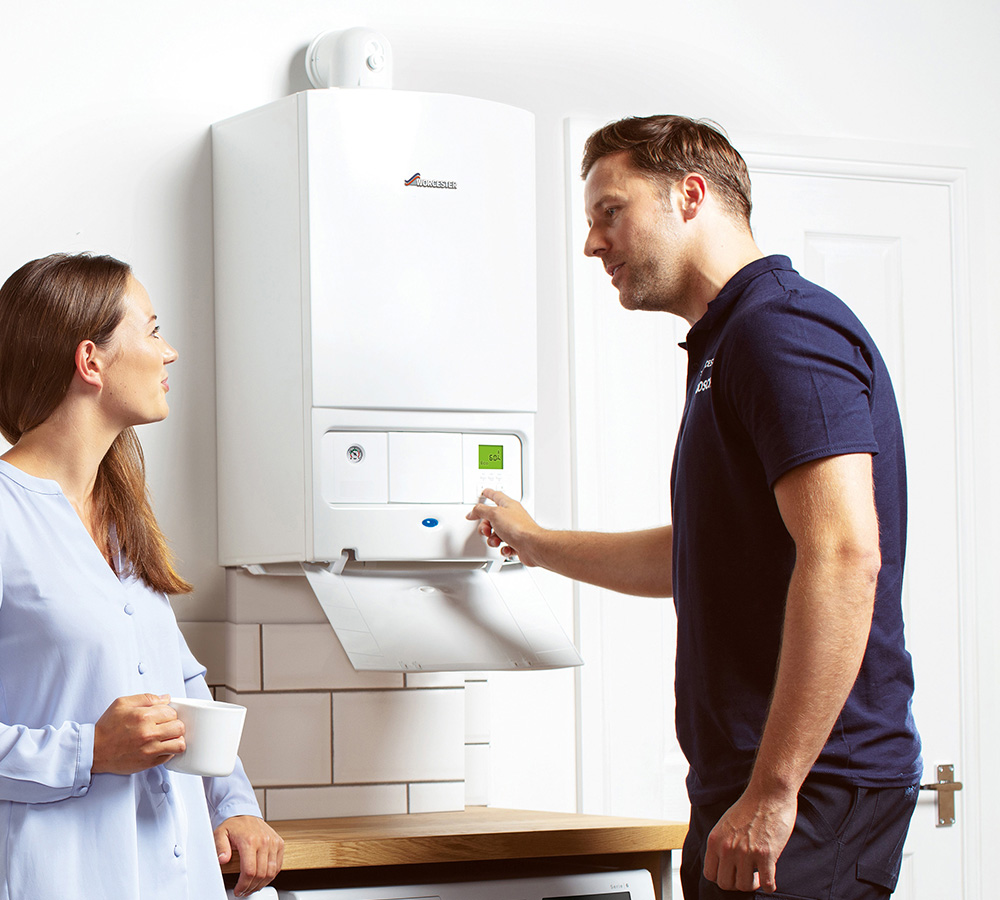
Having an issue with a boiler breakdown?
When you have a boiler fault or something wrong with your boiler it is essential that you get it fixed as soon as you can. Our skilled gas-safe engineers will provide a full fault diagnosis. They will assess the boiler, diagnose the problem and run through what is required for a boiler repair. Before any remedial work is carried out a quote will be given with a breakdown of what is to be done to fix the boiler and cost.
Can I repair my boiler?
There are many different reasons why a boiler might not be working, and the repair process will vary depending on the specific problem. Some common boiler problems include:
❌No heat
No central heating is the most common boiler problem. It can be caused by a number of things, including a faulty thermostat, a blocked filter, or a problem with the boiler itself. Check the boiler for any fault codes and try resetting it first to see if that resolves the problem.
❌Low pressure
Low pressure can be caused by a leak in the system, a problem with the pump, or a faulty expansion vessel. Check round the boiler and all radiator valves for any signs of a leak. Look for damp marks on walls or on carpets.
❌No hot water
If you have no hot water this could be a result of a problem with the hot water tank, the boiler, or the controls. Call a gas safe engineer to diagnose the fault.
❌Strange noises
Odd noises coming from your boiler or central heating system could be caused by a number of things including; a faulty pump, a problem with the bearings, or a build-up of sediment in the system.
How much will it cost to repair my boiler?
Here are some tips for preventing boiler problems:
✔ Have your boiler serviced annually by a gas safe qualified engineer.
✔ Inspect your boiler regularly for leaks or other signs of damage.
✔ Keep the boiler clean and free of debris.
✔ Drain the boiler regularly to prevent sediment build-up.
✔ Replace the boiler filter as needed.
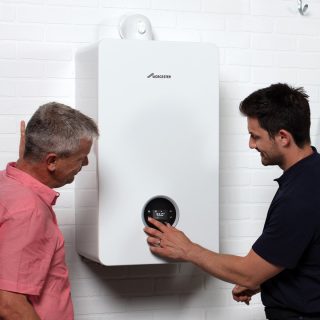
By following these tips, you can help to keep your boiler running smoothly and prevent costly repairs.
If you are considering replacing your boiler, it is important to weigh the cost of repair against the cost of replacement. In some cases, it may be more cost-effective to replace your boiler than to repair it. Check out our new boiler page for a free quote.
The hot water is working but I've got no heating
Here’s a step-by-step guide to troubleshoot and address the problem:
(expand for more detail)
Make sure the thermostat is set to a temperature that should trigger the heating to turn on. Sometimes, the thermostat setting may be too low or set to “off,” preventing the heating from activating.
Verify that the timer or programmer is correctly set to activate the heating at the desired times. It’s possible that the settings may need adjustment or that there’s a fault with the timer/programmer.
Air trapped in the radiators can prevent them from heating up properly. Bleed each radiator in your home to release any trapped air. Start with the radiators furthest from the boiler and work your way back.
Low boiler pressure can cause the heating system to stop working. Check the pressure gauge on your boiler and ensure it’s within the recommended range (usually between 1 and 1.5 bar). If the pressure is low, you may need to repressurise the boiler using the filling loop.
Ensure that the boiler is receiving power. Check the electrical supply to the boiler and verify that the power switch is turned on. If the boiler is connected to a timer or programmer, check the settings to ensure it’s scheduled to operate.
If your boiler has a digital display or fault code system, check for any error codes or fault messages. Refer to the boiler’s manual to interpret the codes and take appropriate action.
Visually inspect the boiler for any signs of damage or leaks. Check the pilot light (if applicable) to see if it’s lit. Listen for any unusual noises coming from the boiler that may indicate a problem.
Try resetting the boiler by turning it off, waiting a few minutes, and then turning it back on again. This can sometimes resolve temporary issues or faults.
If you’ve checked the above steps and are still experiencing issues with your heating, it’s advisable to contact a qualified heating engineer for further diagnosis and repair. They can assess the boiler system comprehensively and identify the root cause of the problem.
By following these steps, you can troubleshoot common issues with your heating system and potentially resolve the problem. If you’re unable to identify or fix the issue on your own, don’t hesitate to seek professional assistance to ensure your heating system is operating safely and efficiently
Will a service fix my boiler?
While a service can address minor issues and optimise the performance of your boiler, it is not intended to repair significant faults or malfunctions.
During a boiler service, a qualified gas engineer will conduct a thorough inspection of your boiler, checking for any signs of wear and tear, leaks, or other potential issues. They will also clean and tune the boiler, ensuring that all components are functioning correctly and that the system is operating efficiently.
However, if your boiler has already broken down or is experiencing a significant fault, a service alone may not be sufficient to fix the boiler problem. In such cases, you will likely need a boiler repair to address the specific boiler issue and restore your boiler to working order.
A repair typically involves diagnosing the problem, replacing faulty components, and making any necessary adjustments or repairs to get your boiler back up and running. Depending on the nature and severity of the issue, a boiler repair may be a relatively simple fix or may require more extensive work.
In summary, while a boiler service is an essential part of preventive maintenance and can help prevent breakdowns, it is not a guaranteed solution for fixing a boiler that has already broken down. If your boiler is not working correctly, it’s essential to contact a qualified gas engineer for a thorough diagnosis and repair. They will be able to assess the issue and recommend the appropriate course of action to get your boiler back in working order.
BOILER REPAIR NEAR ME
- Wolverhampton
- Oxley
- Fordhouses
- Bushbury
- Pendeford
- Claregate
- Tettenhall
- Whitmore Reans
- Penn
- Warstones
- Finchfield
- Perton
- Pattingham
- Wednesfield
- Willenhall
- Darlaston
- Wednesbury
- Codsall
- Brewood
- Albrighton
- Shifnal
- Bilbrook
- Wombourne
- Essington
- Bloxwich
- Featherstone
- Telford
- Madeley
- Woodside
- Stirchley
- Brookside
- Hollinswood
- Dawley
- Malinslee
- Ironbridge
- Ketley
- Broseley
- Priorslee
- St Georges
- Walsall
- Walsall Wood
- Rushall
- Aldridge
- Stonall
- Brownhills
- Clayhanger
- Streetly
- Sutton Coldfield
- Lichfield
- Shelfield
- Pelsall
- Cannock
- Hednesford
- Burntwood
- Norton Canes
- Huntington
- Penkridge
- Dudley
- Tipton
- Sedgeley
- Coseley
- Bilston


